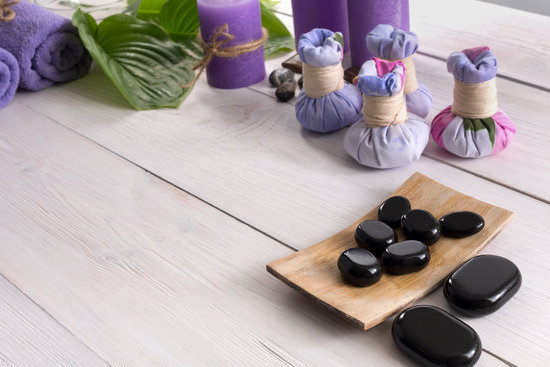Aromatherapy is a practice that utilizes essential oils derived from plants to promote health and well-being. One frequently asked question in this realm is, “is aromatherapy good to clean your nose?” The answer lies in understanding the potential benefits of aromatherapy for nasal health.
When it comes to nasal congestion and irritation, various factors such as allergies, infections, or environmental irritants can play a role. Aromatherapy offers a natural approach to alleviating these issues by providing relief through the use of aromatic essential oils.
Essential oils like eucalyptus, peppermint, and tea tree have been found to be effective in cleansing and decongesting the nasal passages. Whether through inhalation, steam therapy or massage, incorporating aromatherapy into your routine can help improve nasal health and overall well-being.
What Causes Nasal Congestion and Irritation?
Nasal congestion and irritation can be caused by a variety of factors, including allergies, sinus infections, colds, and exposure to irritants like smoke or pollution. All of these factors can lead to inflammation of the nasal passages, resulting in symptoms such as stuffiness, runny nose, and difficulty breathing. When the nasal passages become congested, it can be uncomfortable and may even impact your ability to smell properly.
One natural and holistic approach to relieving nasal congestion and irritation is through the use of aromatherapy. Aromatherapy involves the use of essential oils derived from plants to promote physical and emotional well-being. These essential oils contain therapeutic properties that can help reduce inflammation, clear up congestion, and provide relief from nasal discomfort. The practice of aromatherapy is based on the idea that inhaling certain fragrances can have a positive effect on both the mind and body.
One example of how aromatherapy is beneficial for cleaning your nose is through its anti-inflammatory properties. Essential oils like eucalyptus, peppermint, and tea tree oil have been shown to reduce inflammation in the nasal passages, which can alleviate congestion and make breathing easier.
These oils also have antibacterial properties that can help fight off any underlying infections that may be contributing to nasal issues. By incorporating these essential oils into your nasal cleansing routine, you may find relief from symptoms associated with nasal congestion and irritation.
| Essential Oil | Properties |
|---|---|
| Eucalyptus | Anti-inflammatory and decongestant |
| Peppermint | Cooling sensation and anti-inflammatory |
| Tea Tree Oil | Antibacterial and anti-inflammatory |
How Aromatherapy Can Help Alleviate Nasal Issues
Aromatherapy is a holistic healing treatment that uses natural plant extracts to promote health and well-being. When it comes to nasal issues such as congestion and irritation, aromatherapy can be particularly beneficial in providing relief. The use of essential oils in aromatherapy is known for their anti-inflammatory, antibacterial, and decongestant properties, making them effective in clearing the nasal passages and promoting better respiratory health.
Anti-Inflammatory Benefits of Aromatherapy
One of the key benefits of aromatherapy for alleviating nasal issues is its anti-inflammatory properties. Inflamed nasal passages can lead to congestion and discomfort, making it difficult to breathe properly. Certain essential oils like eucalyptus, peppermint, and tea tree oil have been found to reduce inflammation in the nasal passages when inhaled or used topically. By incorporating these oils into your aromatherapy routine, you can effectively soothe irritated nasal tissues and enhance overall respiratory function.
Decongestant Effects of Aromatherapy
Nasal congestion is a common issue that many people face due to various factors such as allergies, infections, or environmental pollutants. Aromatherapy offers a natural solution to help clear congested sinuses and improve breathing.
Essential oils like lavender, lemon, and rosemary are known for their decongestant properties, which can help break up mucus build-up in the nasal passages and promote easier airflow. Inhaling these oils through steam inhalation or diffusing them in your living space can provide quick relief from congestion and promote clearer breathing.
Calming and Relaxing Effects of Aromatherapy
In addition to its physical benefits for nasal health, aromatherapy also offers psychological support by promoting relaxation and reducing stress levels. Nasal issues can often be exacerbated by stress and anxiety, leading to heightened symptoms like congestion and irritation.
Using calming essential oils such as chamomile, frankincense, or sandalwood can help alleviate stress-related issues that may impact your nasal health. Incorporating aromatherapy into your daily routine can not only provide relief for your nasal passages but also contribute to a sense of calmness and well-being overall.
The Best Essential Oils for Nasal Cleansing and Decongestion
Aromatherapy is a popular and natural remedy that many people turn to for various health benefits, including nasal cleansing and decongestion. When it comes to selecting essential oils for this purpose, there are a few key options that have been found to be particularly effective.
Peppermint oil is known for its cooling effect and ability to open up the sinuses, making it a great choice for clearing nasal congestion. Eucalyptus oil is another excellent option due to its anti-inflammatory properties and ability to provide relief from sinus pressure.
In addition to peppermint and eucalyptus oils, tea tree oil is also impactful when it comes to nasal cleansing and decongestion. Tea tree oil has strong antimicrobial properties that can help fight off bacteria in the nasal passages, which may contribute to congestion or irritation. By incorporating these essential oils into your aromatherapy routine, you can promote clearer breathing and overall nasal health.
| Essential Oil | Main Benefits |
|---|---|
| Peppermint Oil | Cooling effect, opens sinuses |
| Eucalyptus Oil | Anti-inflammatory, relieves sinus pressure |
| Tea Tree Oil | Antimicrobial properties, fights bacteria |
When using these essential oils for nasal health, it’s important to dilute them properly with a carrier oil like coconut or jojoba oil before applying them topically or inhaling them through steam. This will help prevent any skin sensitivity or irritation that may occur with direct contact with concentrated essential oils. Additionally, always perform a patch test on a small area of skin before widespread use.
Methods of Using Aromatherapy for Nasal Health
Aromatherapy offers a natural and effective way to clean and clear your nasal passages, providing relief from congestion and irritation. There are various methods of utilizing aromatherapy to support nasal health, including through inhalation, steam therapy, and massage. Incorporating essential oils into your daily routine can help not only cleanse your nose but also promote overall well-being.
Inhalation is one of the most common methods of using aromatherapy for nasal health. Simply adding a few drops of essential oil to a diffuser or inhaling the scent directly from the bottle can help open up your airways and clear congestion. Some of the best essential oils for inhalation include eucalyptus, peppermint, and tea tree oil. These oils have antimicrobial properties that can help kill germs in the nasal passages.
Steam therapy is another effective way to clean your nose using aromatherapy. Adding a few drops of essential oil to a bowl of hot water or a humidifier can create steam infused with the beneficial properties of the oil. Inhaling this steam can help loosen mucus in the sinuses and provide relief from nasal congestion. Popular oils for steam therapy include lavender, rosemary, and chamomile.
Lastly, using aromatherapy through massage techniques can also aid in cleansing your nose. Diluting essential oils with a carrier oil such as coconut or jojoba oil and gently massaging the blend onto your sinuses can help reduce inflammation and promote drainage. Oils like lemon, frankincense, and cedarwood are known for their soothing effects on nasal passages when used in massage. By incorporating these methods into your daily routine, you can enjoy improved nasal health naturally and effectively.
Safety Precautions and Tips for Using Aromatherapy to Clean Your Nose
Patch Test Before Use
Before using any essential oils for nasal cleansing or decongestion, it is essential to perform a patch test. This involves applying a small amount of diluted essential oil to your skin and waiting for any adverse reactions like redness, itching, or irritation. This simple step can help prevent potential allergic reactions when using aromatherapy to clean your nose.
Dilute Essential Oils Properly
Essential oils are highly concentrated substances that should never be applied directly to the skin or inhaled without proper dilution. When using aromatherapy for nasal health, make sure to dilute essential oils in carrier oils like coconut oil, almond oil, or jojoba oil before application. Proper dilution not only ensures safety but also maximizes the benefits of the essential oils.
Avoid Certain Essential Oils
While many essential oils offer beneficial properties for nasal cleansing, some can actually exacerbate nasal issues or cause respiratory problems. It is important to avoid using essential oils like peppermint or eucalyptus in young children or individuals with asthma as they may trigger breathing difficulties. Always research the specific properties of each essential oil before incorporating them into your aromatherapy routine.
These safety precautions and tips are crucial for harnessing the full potential of aromatherapy for cleaning your nose while ensuring a safe and effective experience. By following these guidelines, you can enjoy the natural benefits of essential oils without risking any adverse effects on your nasal health. Remember that consulting with a healthcare professional before starting any new aromatherapy regimen is always recommended.
Scientific Evidence Supporting the Efficacy of Aromatherapy for Nasal Health
Aromatherapy has gained popularity not only for its calming and relaxing effects but also for its potential benefits in promoting nasal health. Scientific evidence supporting the efficacy of aromatherapy for nasal health is increasingly emerging, showcasing the power of essential oils in alleviating congestion and irritation in the nasal passages. Here are some key studies highlighting the effectiveness of aromatherapy in promoting nasal health:
- A study published in the Journal of Evidence-Based Complementary and Alternative Medicine found that inhaling a blend of eucalyptus, peppermint, oregano, and rosemary essential oils helped reduce nasal congestion and improve overall nasal airflow in participants with chronic rhinosinusitis.
- Research conducted by the Department of Pharmaceutical Chemistry at NIMS University in India demonstrated that inhaling lavender essential oil can help significantly reduce symptoms of allergic rhinitis, such as sneezing and nasal itching, making it a promising natural remedy for nasal allergies.
- Another study from the University of Munster in Germany reported that using a steam inhalation method with tea tree oil effectively reduced nasal colonization with Staphylococcus aureus bacteria, which can contribute to sinus infections and inflammation.
These studies suggest that incorporating aromatherapy into your daily routine can be beneficial for maintaining optimal nasal health. Whether you suffer from seasonal allergies, sinus issues, or simply want to improve your respiratory well-being, using essential oils through various methods like inhalation, steam therapy, or massage can provide relief from nasal congestion and promote clearer breathing.
- When using aromatherapy for nasal health, it is important to choose high-quality essential oils from reputable sources to ensure purity and potency.
- Avoid direct contact with undiluted essential oils on the skin or mucous membranes to prevent irritation or adverse reactions; always dilute them with a carrier oil like coconut or almond oil before topical application.
- If you have underlying medical conditions or are pregnant or nursing, consult a healthcare professional before using aromatherapy for nasal health to ensure safety and appropriateness.
Incorporating Aromatherapy Into Your Daily Routine for Improved Nasal Health
Aromatherapy can be a beneficial addition to your daily routine to improve nasal health. By incorporating essential oils into your regimen, you can help alleviate nasal congestion, irritation, and other common issues. The use of aromatherapy is believed to be effective in cleansing the nose and promoting overall respiratory health.
One of the best ways to incorporate aromatherapy into your daily routine for improved nasal health is through inhalation. You can add a few drops of essential oil to a diffuser or simply inhale the scent directly from the bottle. This method allows the aromatic molecules from the essential oils to enter your nasal passages and provide relief from congestion.
Another effective way to use aromatherapy for nasal health is through steam inhalation. Adding a few drops of essential oils, such as eucalyptus or peppermint, to a bowl of hot water and inhaling the steam can help clear your sinuses and reduce inflammation.
Additionally, you can incorporate aromatherapy into your daily routine by adding a few drops of essential oils to a carrier oil, such as coconut or almond oil, for a soothing nasal massage. This gentle massage technique can help promote circulation in the nasal passages and alleviate congestion.
Conclusion
In conclusion, it is evident that aromatherapy can indeed be beneficial for cleaning and maintaining nasal health. The use of essential oils in aromatherapy has shown promising results in alleviating nasal congestion, irritation, and promoting overall respiratory well-being. By harnessing the power of natural plant extracts, individuals can potentially find relief from common nasal issues without having to rely solely on over-the-counter medications.
The best essential oils for nasal cleansing and decongestion include eucalyptus, peppermint, tea tree, and lavender. These oils not only help clear the nasal passages but also have antimicrobial properties that can support the immune system and prevent infections. Incorporating these essential oils into inhalation, steam therapy, or massage techniques can effectively cleanse your nose and promote easier breathing.
Overall, it is important to remember that while aromatherapy can offer benefits for nasal health, it is crucial to practice caution and follow safety precautions when using essential oils. Consulting with a healthcare professional or aromatherapist before starting an aromatherapy regimen is recommended to ensure proper usage and avoid any adverse reactions. By incorporating aromatherapy into your daily routine along with good hygiene practices, you can embrace the natural benefits of this alternative therapy for improved nasal health.
So to answer the question: “Is aromatherapy good to clean your nose?” – Yes, it definitely is a viable option worth considering for those looking for natural approaches to support their nasal health.
Frequently Asked Questions
Does Aromatherapy Clear Sinuses?
Aromatherapy can help clear sinuses by using essential oils like eucalyptus, peppermint, and tea tree oil. These oils have decongestant properties that can aid in relieving nasal congestion and promoting easier breathing.
Is It OK to Put Essential Oils in Your Nose?
It is generally not recommended to put essential oils directly into your nose due to the risk of irritation or damage to the delicate nasal tissues. Instead, it is safer to inhale essential oils through steam inhalation or a diffuser to avoid any potential harm.
What Scent Clears Your Nose?
Some scents that can help clear your nose include menthol, eucalyptus, peppermint, and pine. These aromatic scents have properties that can open up congested nasal passages and promote clearer breathing by reducing inflammation and mucus buildup in the sinuses.

Are you looking for a natural way to improve your health and wellbeing?
If so, aromatherapy may be the answer for you.






